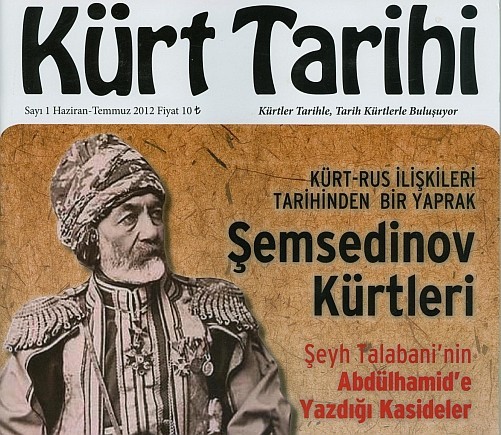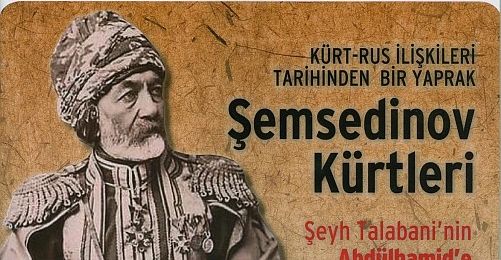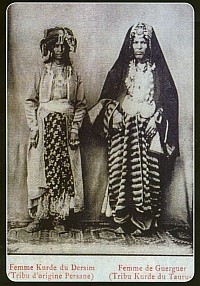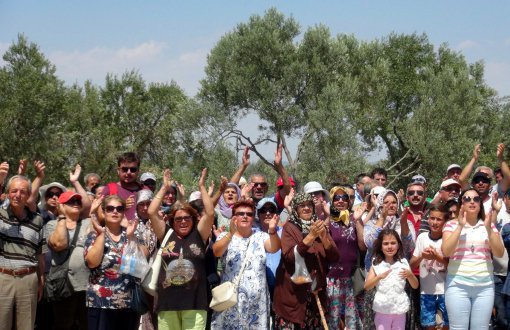
The second edition of Turkey's first magazine on Kurdish history has hit the bookshelves with the stated goal of popularizing the history of the Kurds and Kurdistan. Published bi-monthly in Turkish, "Kürt Tarihi" ("Kurdish History") features an assortment of informative articles and other writings, ranging from a piece on a Kurdish Theater that appeared in the 1893 Chicago World's Fair and an ode by Şeyh Rıza Talabani to the Ottoman Sultan Abdülhamit to the first Kurdish Poetry Anthology, Kızılbaş Kurdish postcards and a 200 year old Kurdish medical book.
Prof. Mesut Yeğen is currently serving as the magazine's editor-in-chief, and he has already published a number of books on the Kurdish question. Many magazines have included writings on Kurdish history starting from the Bedirhans' "Kurdistan" magazine, but this represents the first occasion that a Kurdish history magazine is published in Turkey, he told bianet.
"Kurdish historiography lacks a grand sponsor"
What compelled [you] to publish this magazine?
Needless to say, the subject of history has been attracting much attention in Turkey in recent times, and many a popular history magazines have come out. As always, however, Kurds and Kurdistan are entirely missing from all these publications. The "Kurdish History" magazine wants to put an end to this state of invisibility, even if only to a certain degree.
To what degree is it possible to write the history of a stateless people?
It was the professional institutions of nation-states that have generally written and construed the histories of nations in modern times. Kurdish historiography, on the other hand, never had such a grand sponsor, at least until recent times. In fact, however, the Kürt Tarihi magazine [flaunts] no such claims as construing a historiography. Its aims are far more modest. Our concern is more about raising the profile of the history of the Kurds and Kurdistan in the popular [consciousness.]
Is it possible to transcend the official historical narrative on Kurdish history and reach reliable sources?
Our authors are completely independent. Just as we have self-educated historians, we also have scholars of history. We also have friends who have worked in the archives of such states as the Ottoman Empire, Turkey, the U.S., Britain and France, as well as friends engaged in oral history. To be frank, however, we do not yet know what the [true] potential is. Creating new writers and providing a medium for historians who have not been able to find the opportunity to write [on the subject] are also among the important aims of the magazine.
Five sources for beginners
Can we say this magazine's target audience are the people of Turkey since it is [published] in Turkish?
Of course, this magazine is expected to [gain a following] among people who read and write in Turkish. We are also going to include writings in Kurdish as they come along. Nonetheless, I would like to say this: I hear some reproach from time to time about why this magazine is published in Turkish and not in Kurdish. We are expecting to see the publication of a history magazine in Kurdish from those people who voice such complaints.
Could you cite five sources [that are available] in Turkish for enthusiasts of Kurdish history and possibly for beginners?
Şerefname would surely be the first source. Kürtler (Kurds) by Russian orientalist Minorsky, Kürtler ve Kürdistan Tarihi (History of Kurds and Kurdistan) by Mehmet Emin Zeki Bey are also important. The Kurds by David McDowall and Wadie Jwaideh's The Kurdish National Movement are also [primary] reference books. (NV)











